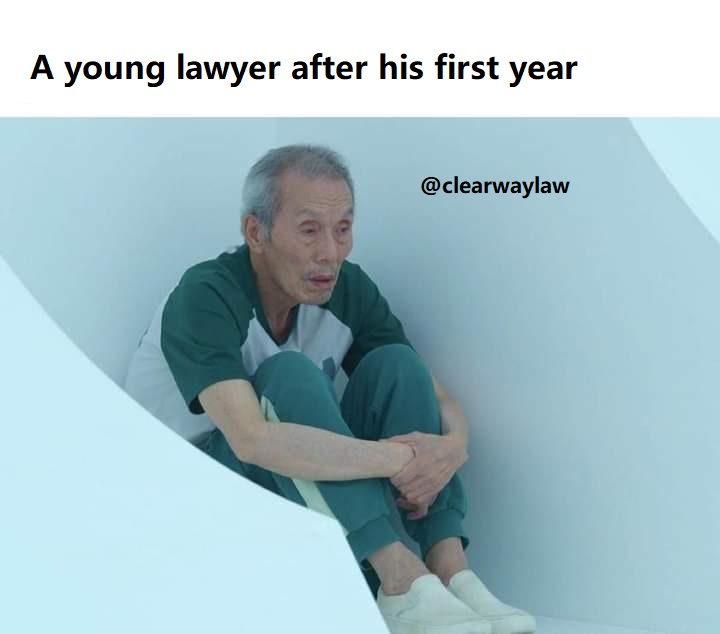Are you trying to create a positive tenant-landlord relationship? The first phase of the rental experience between landlord and tenant is the most important.
Both parties must learn about their rights and responsibilities for a smooth and successful landlord-tenant relationship. They must also know what legal actions to take to enforce these rights.
If one plans to rent a house in the big towns of Canada, it is crucial to go through a reliable platform. Rentola.ca is a good option for people looking to rent in cities like Surrey since they facilitate the landlord and tenant connection and help lay the groundwork for a positive renting experience.
If you want to speak to a Realtor in BC, we suggest calling Jova Xu. 7786808530 … You can also text this number.
If you need a lawyer in BC, reach out to Davison North Law at 6046297808
What Are The Laws Protecting Tenants In Canada?
There are several laws and legislation in Canada which are there to protect tenants from unfair treatment. The most significant among these laws is the Residential Tenancies Act. This law is there to protect the rights of landlords and tenants in most Canadian territories.
Outlined in the Residential Tenancies Act are the rights and responsibilities of both parties, covering hot topics like:
- Rent increases: The Residential Act protects the tenant from unfair rent increases.
- Maintenance standards: According to the law, landlords must ensure their house follows the housing standard.
- Eviction: This act also protects tenants from undue and unlawful eviction.
Promoting Harmony in Tenant-Landlord Relationships
Under this law, landlords must keep their houses up to par by providing basic amenities such as electricity, heat, water, etc. On the other hand, tenants are responsible for keeping the property clean, paying rent, and showing respect to other tenants.
Aside from the RTA (Residential Tenancies Act), some Canadian provinces like Ontario and Quebec have their tenancy laws, namely, the Ontario Tenancies Act and the Quebec Civil Code.
These laws protect tenants from arbitrary eviction and unfair treatment while offering guidance on the fair settlement of disputes.

What Are The Fundamental Rights And Duties Of A Tenant?
Each tenant living in Canada must be aware of their fundamental rights and duties. They are as follows;
Rights To A Habitable Dwelling
Tenants have the right to live in a house meeting basic housing standards. This is why it is necessary to go through a reliable source when searching for a house in Canada.
Right to Privacy
Tenants have the right to enjoy their homes in peace and privacy. This means that even the landlord cannot enter the tenant’s home without prior notice.
Right To Fair Housing
All tenants are entitled to fair housing. They cannot be discriminated against based on race, gender, sexuality, or religion.
Right To Request Maintenance
Tenants can and should request repairs on their property. Landlords must adhere to the tenant’s request and address the issue promptly.
Right To Receive Prior Notice
Tenants have the right to receive prior notice from their landlords before they alter the lease agreement.
Duties:
Rent Payment
The tenant must follow the terms of the lease agreement regarding rent payment. They must pay their rent in full and on time.
Keeping The Property Clean
Tenants are also responsible for keeping their apartments clean. All tenants must participate in housekeeping tasks such as dusting, mopping, and removing trash.
Report Damages
The tenant must report any damage to the property to their landlords as soon as they know of the damage.
Respect Neighbors
Tenants must maintain the peace and tranquillity of their community by showing respect to neighbours.
Follow the Lease Agreement
Tenants must also follow the terms of the lease agreement to the letter. These terms may restrict smoking or pets.

How Much Notice Must A Landlord Give A Tenant?
The appropriate amount of time for a notice depends on the reason for the notice. Here are some common causes and how much time tenants can expect to receive in such circumstances;
End of Tenancy
In most provinces, the landlord must provide at least 60 days prior notice if they want the tenant to leave at the end of their lease term.
Eviction for Cause
If the landlord is evicting the tenant for reasons such as breaking the lease agreement or property damage, they must provide prior written notice 14 or 30 days before eviction.
Rent Increase
In many provinces, the landlord must inform tenants with written notice at least 90 days before increasing the rent.
Access To The Property
When the landlord needs to enter their tenant’s home, they usually must provide 24-48 hours of prior notice, either verbally or in writing.
What Rights Do Long-term Tenants Have In Canada?
There are certain rights exclusive to long-term tenants in Canada. They are as follows;
Rent Control
Long-term tenants in Canada are protected from sudden rent increases in many provinces. These provinces limit how much landlords can increase the rent for long-term tenants.
Protection From Eviction
Long-term tenants are also protected from arbitrary eviction. They must be evicted with reasonable cause and adequate prior notice.
Right To Renew The Lease
In most Canadian territories, long-term tenants can renew their lease agreement at the end of the term as long as they have fulfilled their tenancy obligations.
What Happens If A Tenant Refuses To Leave?
Tenants refusing to leave is one of the challenges that Canadian landlords face. If the landlord provided proper notice to the tenant regarding eviction and they still refuse to go, the landlord may pursue legal action to reclaim their rental unit.
If the tenant does not leave after receiving a note of eviction, the landlord can apply to the provincial residential tenancy authority to obtain an order of possession.
Once the landlord has been granted the possession order, they should submit it to court. Afterward, the sheriff will enforce the court order and have the tenant removed.
It is worth noting, however, that landlords should never take laws into their own hands. Do not take drastic actions like locking the tenant out of their homes or throwing their things out, as this is illegal and can cause the case to backfire.
Why is it called a tenant?
The term “tenant” is derived from the Old French word “tenir,” which means “to hold.” In the feudal system of medieval Europe, the land was granted by a lord to a vassal, who in turn could grant parts of the land to sub-vassals. These sub-vassals were known as “tenants” because they held the land from the vassal who held it from the lord.
Over time, the term “tenant” came to be used more generally to refer to someone who rents or leases the property from a landlord. The modern meaning of “tenant” is someone who occupies the land, property, or a space, typically by paying rent or lease payments to the owner or landlord.
What are the 5 basic responsibilities of being a landlord?
As a landlord, it’s important to ensure that your tenants have a safe and comfortable living environment. This requires you to perform several essential tasks. Keeping the property well-maintained is one of the most critical responsibilities.
As a landlord, you are responsible for ensuring that the property meets all the health and safety standards. This includes fixing broken appliances, repairing a plumbing and electrical system, and removing any hazards that could pose a risk to your tenants.
Providing essential services is another critical aspect of being a landlord. You must ensure that the property has all the necessary services, such as electricity, gas, water, and heating.
Tenant-Landlord Relations in the Canadian Market
It is your responsibility to fix any issues with these services promptly. Your tenants depend on these services to live comfortably, and it’s essential to maintain them properly.
Collecting rent and security deposits is also part of your responsibilities as a landlord. It is crucial to be organized and timely while collecting rent and security deposits.
You must provide your tenants with a detailed lease agreement that outlines the rental terms and conditions, including the rent amount, payment due dates, security deposit amount, and any other relevant details.
Respecting tenant privacy is also a critical aspect of being a landlord. You must not interfere with your tenants’ quiet enjoyment of the rental property and respect their privacy.
Providing notice before entering the property and not engaging in any discriminatory behaviour are some of the ways to respect tenant privacy.
Tenant-Landlord Relationship Canada
As a landlord, you are responsible for resolving disputes that may arise between tenants or between you and the tenant. This includes addressing complaints about noise, maintenance issues, and other concerns that the tenants may have.
Following all the legal procedures for resolving disputes, including eviction proceedings if necessary, is essential.
Being a landlord is a significant responsibility that requires you to fulfill several essential duties. By maintaining the property, providing essential services, collecting rent and security deposits, respecting tenant privacy, and resolving disputes, you can create a comfortable and safe living environment for your tenants while protecting your investment.
We hope you learned a lot about the tenant-landlord relationship in Canada.


